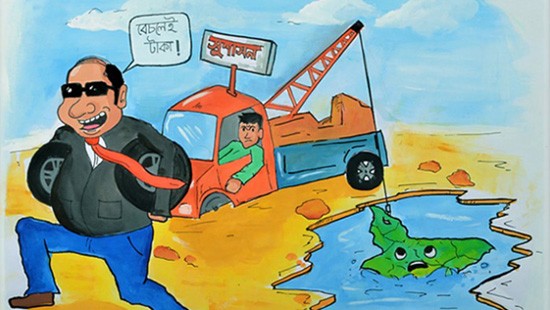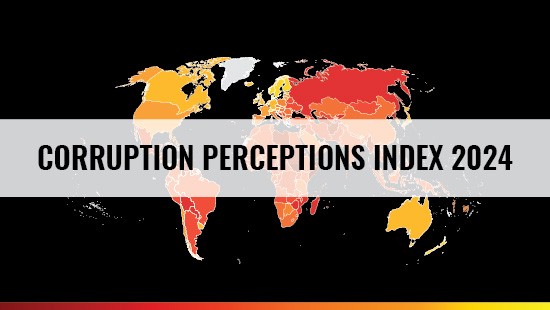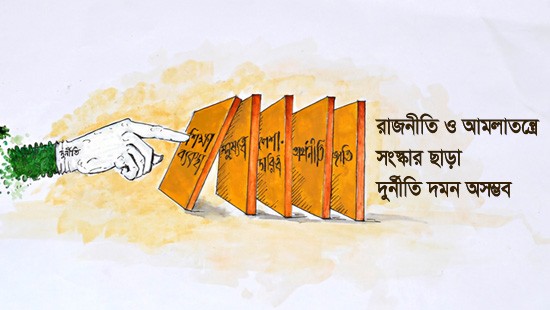Published: 20 December 2012
Bangladeshi factory fires corruption and the rule of law
Janet Keeping
Transparency International Canada
and
Iftekhar Zaman
Transparency International Bangladesh
CALGARY, AB, Dec. 20, 2012/ Troy Media: Much attention is being paid to the incidence of deadly fires in Bangladesh’s garment industry. The factory fire in Tazreen, Bangladesh, which killed more than 110 people, has been the primary focus of attention. But the Tazreen fire was far from the first in Bangladesh’s clothes manufacturing industry. It isn’t even the most recent. There was another a couple of days later.
Arson is blamed for the Tazreen fire but, as widely reported, the deaths were caused by “blocked stairwells and locked emergency exits.” The company which owned the plant, the Tuba Group, is said to have been “repeatedly cited” for infractions of worker protection rules and thus looks culpable.
Responsibility also has to be borne by Bangladeshi government officials for failure to ensure those rules were enforced. Corruption is rampant in Bangladesh, which scores poorly on Transparency International’s Corruption Perceptions Index (CPI). Allegations have been made that corruption was involved in allowing the factory to stay open despite the repeated infractions. We cannot confirm that claim but would not find it surprising if that were the case. On the other hand, it may have been simple law enforcement incompetence or lack of funding, rather than corruption, that was at fault or, as is common, some combination of all three. The bottom line is that worker safety laws were not enforced. There are lessons to be learned from tragedy in Bangladesh about the importance of the rule of law.
First, its absence kills. Examples are regrettably easy to come by. Consider the pilot who flew the Russian plane which crashed in September 2011 killing nearly the entire Lokomotiv hockey team. It is reported he didn’t have the training he claimed, that his piloting credentials were falsified. Or what about the children in Sichuan China who died in 2008 when their schools collapsed on top of them because local officials corruptly colluded with contractors in their shoddy construction?
Most Canadians take the rule of law for granted most of the time. But the risk to human health and life in pervasively corrupt jurisdictions without a functioning rule of law – such as Russia, China and Bangladesh – is real and ever present.
Second, although Canadians may feel very distant from tragedy in places such as Bangladesh, they are not. Indeed they are implicated both directly and indirectly in both the problems and perhaps some of the solutions.
For one thing, the owner of the Tazreen factory, in which so many Bangladeshis died, is reported to be a Canadian.
For another, Canada’s only major conviction to date under the Corruption of Foreign Public Officials Act saw a Calgary-based oil and gas company – Niko Resources – plead guilty to bribing a Bangladeshi Cabinet Minister. There is no direct causal connection between bribing a Cabinet Minister to advance an oil and gas project and the failure to enforce worker safety laws. But by bribing that cabinet minister, Niko Resources was helping to perpetuate the lawlessness and corruption that keep Bangladeshis overwhelmingly poor and powerless, and which not infrequently kill them.
Worrisome too is that Canadian engineering company SNC-Lavalin is under investigation for alleged corruption around Bangladesh’s largest ever infrastructure project – the “Padma Bridge”.
Many companies from developed countries seem to think it is OK to behave unethically in places such as Bangladesh, while purporting to be good corporate citizens at home. But in an age of instantaneous global communications, such blatantly inconsistent ethics don’t make the grade.
Establishing the rule of law and eradicating deeply entrenched corruption in places such as Bangladesh are extraordinarily complex tasks. The primary onus to effect such changes is on the governmental, political and professional institutions in those countries. But western companies doing business abroad have also to take responsibility for their actions.
Those companies are not helpless in the face of lawlessness and corruption in foreign jurisdictions. For example, the Toronto Globe and Mail reported that a Montreal company “stopped importing from the Tuba Group’s Tazreen factory earlier this year because the company failed an (ethical-sourcing) audit.” But as a result, poor Bangladeshi women lose their garment industry jobs. Better ways to resist corruption must be found. One is for companies to be more closely involved in preventive measures, such as strict compliance with safety standards, as part of their initial investment decision.
Another take-away for Canadians is the importance of vigilance at home. The allegations of collusion between government and business to inflate construction costs in Quebec, while not yet proven, are extremely disturbing. From other parts of the country we hear of abuses of power, such as politicians using their elected positions to solicit funds for their favourite charities. If not addressed in early stages, these abuses undermine the rule of law and produce a climate of impunity conducive to more egregious forms of corruption.
Janet Keeping is chair of Transparency International Canada.
&
Iftekhar Zaman is the Executive Director of Transparency International Bangladesh.







